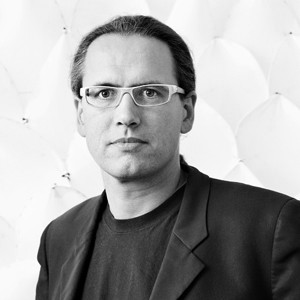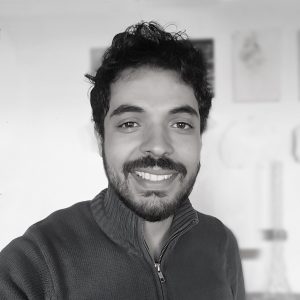CITA
Centre for Information Technology and Architecture (CITA), The Royal Danish Academy of Fine Arts, Schools of Architecture, Design and Conservation
Copenhagen, Denmark
CITA [Centre for IT and Architecture] is a research centre at the Royal Danish Academy of Fine Arts, Schools of Architecture, Design and Conservation.
CITA examines how new information and communication technologies fundamentally challenges architectural practice as a tool for design, fabrication and communication.
CITA has three research areas:
- Digital Formations, investigating complex modelling and Building Information Modelling as a new design tool for architecture and digital fabrication.
- Behaving Architectures, investigating new programmable materials and smart textiles
- Interface Ecologies investigating real-time modelling, interface design and intelligent programming.
CITA was founded in 2005 and uses a practice based research method, focussed on the conceptualisation, design and realisation of working prototypes and full-scale demonstrators. CITAs work has a strong cross-disciplinary focus consolidates new collaborations with interdisciplinary partners from the fields of engineering, design, robotics and material science. We work through manifold national and international industry collaborations through established programs of industrial PhDs, consultancy, training and research collaboration.
CITA has a consolidated track record in initiating and running large scale research projects with international partnerships.
Researchers: Professor Mette Ramsgaard Thomsen, Associate Professor Martin Tamke.
People
Martin Tamke
CITA / ASSOCIATE PROFESSOR
Martin Tamke is Associate Professor at the Centre for Information Technology and Architecture (CITA) in Copenhagen. He is pursuing a design led research in the interface and implications of computational design and its materialization. He joined the newly founded research centre CITA in 2006 and shaped its design based research practice. Projects on new design and fabrication for wood and fibre based materials led to… read more
Mette Ramsgard Thomsen
CITA / PROFESSOR / Head of CITA
Mette Ramsgard Thomsen’s research centres on the intersection between architecture and computer science. During the last 15 years her focus has been on the profound changes that digital technologies instigate in the way architecture is thought, designed and built. In 2005 she founded the Centre for IT and Architecture research group (CITA) at the Royal Academy of Fine Arts, School of Architecture, Design… read more
Tom Svilans
cita / ESR02 – INTEGRATING MATERIAL PERFORMANCE
Tom Svilans is an Innochain PhD fellow at CITA in Copenhagen. His research focuses on the link between industrial timber fabrication and early-stage architectural design. Through hands-on prototyping, coding, and industry secondments, he looks at how certain material properties and behaviours of timber can be leveraged to create smarter and more innovative design solutions.
Paul Poinet
CITA / ESR06 MULTI SCALAR MODELLING FOR BUILDING DESIGN
Paul Poinet is holding a B.Arch. from the Ecole Nationale Supérieure d’Architecture Paris-Malaquais (ENSAPM) and a M.Sc. in Integrative Technologies and Architectural Design Research from the University of Stuttgart (ICD/ITKE).
During his Bachelor of Architecture (2010-2013), he has been working in the design development of concrete lattices at EZCT Architecture & Design… read more
Ayoub Lharchi
CITA / ESR14- DESIGN FOR MANUFACTURE AND ASSEMBLY
Ayoub Lharchi is a research associate and doctoral candidate at CITA (Center for Information Technology and Architecture) at the Royal Danish Academy of Fine Arts, Schools of Architecture. After his graduation from the National School of Architecture Rabat with honors, he joined the University of Stuttgart where he earned his Master’s of Science degree… read more
research projects
ESR02 – INTEGRATING MATERIAL PERFORMANCE
Author: Tom Svilans
Industrial Partners: Blumer Lehmann, White. The ability to simulate material performance, parametrising and calculating material properties as design drivers present new perspectives in structural and material thinking. By understanding materials not as static or inanimate, but as engaged by complex behaviours, material performance is regarded as one of the richest sources of innovation. New structural paradigms are emerging that integrate material performance such as active bending. read more
Keywords: · Communicating · INTEGRATING MATERIAL PERFORMANCE · timber
ESR06- MULTI SCALAR MODELLING FOR BUILDING DESIGN
Author: Paul Poinet
Industrial Partners: Buro Happold, designtoproduction. Investigating multi scale modelling principles for architectural design. Multi-scale modelling is an interdisciplinary research topic in which systems are modelled at multiple scales and interfaced enabling the modelling of low scale systems to parametrisise and inform high scale systems . The project investigates multi scalar modelling as a means to support iterative build-up of knowledge in the design process in which highly specified material simulations interface with open ended design models. read more
Keywords: · Multi Scalar Modelling · simulation · timber
ESR14- DESIGN FOR ASSEMBLY
Author: Ayoub Lharchi
Industrial Partners: designtoproduction, Bluhmer Lehmann. One of the central achievements of digital chain is the ability to mass customise building elements creating individualised solutions and enabling new kinds of building geometries. While methods for the design and production of customised elements have matured, the planning of assembly procedures remains undeveloped in the building sector – in contrast to for example to product design . read more
Keywords: · Design for manufacture and assembly · Mass Customisation · timber















